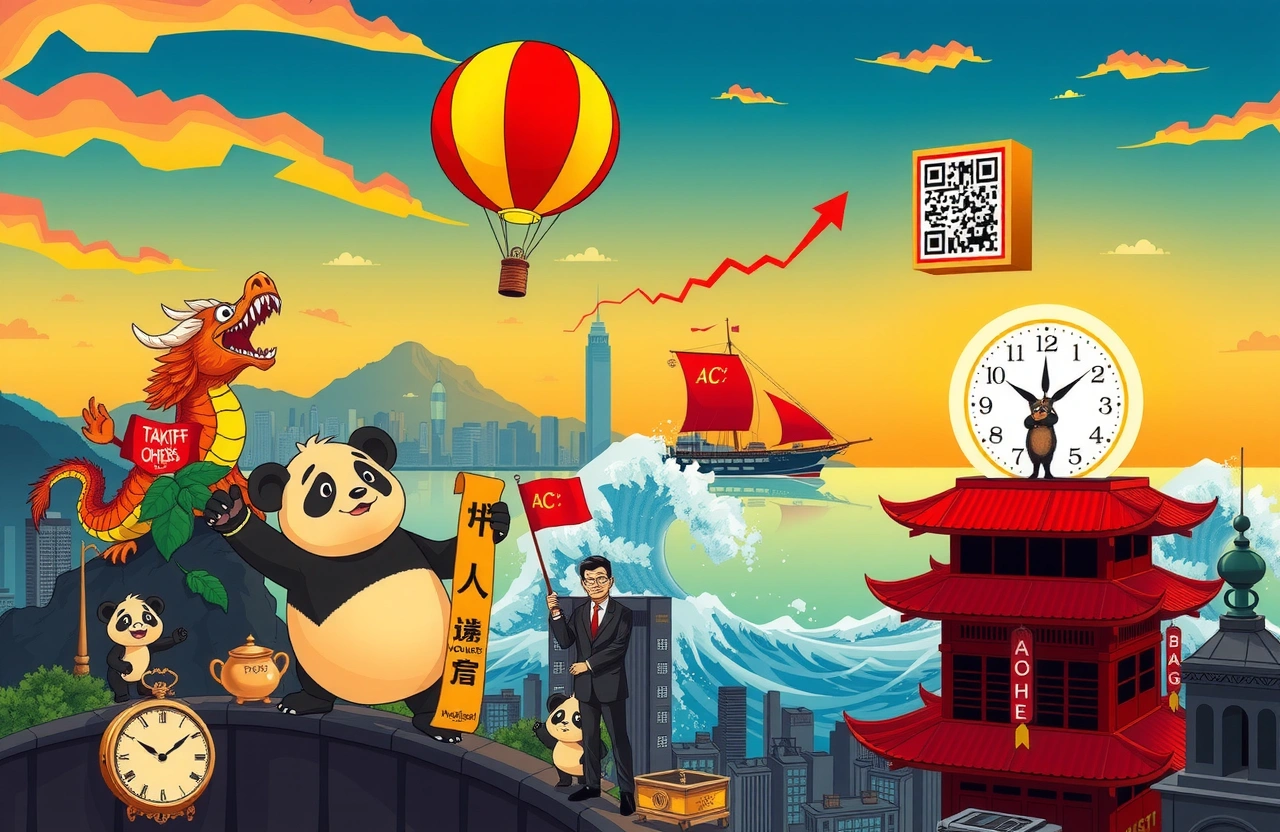Meta description: Analysis of Hong Kong’s stock market surge: Policy tailwinds, consumption stimulus, and Nvidia export approvals fueled dramatic gains while easing tariff fears improved global sentiment.
The Hong Kong stock market demonstrated remarkable resilience with a powerful late-afternoon rally. This surge wasn’t isolated volatility; it arose from converging catalysts including major policy developments from Beijing, record-setting consumption stimulus, and breakthrough approvals for critical technology imports.
Key Takeaways
- Major indexes surged: Hang Seng (+1.6%), Hang Seng Tech (+2.8%)
- Government’s anti-‘internal competition’ policies signaled stronger market regulation
- Taobao’s consumption vouchers boosted nighttime economy (+200% orders)
- Nvidia’s H20 AI chip received export approval to China
- Favorable liquidity conditions supported gains
Market Performance Recap
The July 15th session saw substantial gains across key indices. Major tech stocks led the charge:
- Alibaba: +7%
- Meituan/Baidu: +4%+
- Tencent Holdings: +3%
- Cloud/data stocks: WanGuo Data (+12%), Kingsoft Cloud (+16%)
Intraday Volatility Pattern
The session began strongly before midday profit-taking caused a pullback. The decisive rebound emerged after European markets opened positively, quelling tariff concerns.
Policy Tailwinds Driving Gains
The National Bureau of Statistics reinforced Beijing’s market-regulating initiatives. Vice Minister Sheng Laiyun (盛来运) emphasized:
Anti-‘Internal Competition’ Framework
The government unveiled measures targeting predatory pricing that eroded corporate profits. These regulations signal:
- Reduced price wars in saturated sectors
- Operational margin improvements for listed companies
- Accelerated exit of uncompetitive players
Consumption-Led Growth Catalyst
Consumer-facing industries benefited from unprecedented stimulus spending:
Taobao’s Night Economy Boost
The platform’s 50 billion yuan voucher program yielded impressive results:
- Nighttime orders surged 200%+ in Shenzhen, Guangzhou, Jinan
- Participating merchant volume rose 100%+ monthly
- Demonstrated pent-up discretionary spending capacity
Technology Sector Breakthrough
A critical catalyst emerged as Nvidia CEO Jensen Huang (黄仁勋) announced:
H20 Chip Export Approval
The long-awaited AI chip export license:
- Solves supply constraints for China’s cloud providers
- Validates Washington-Beijing pragmatic tech cooperation
- Improves fundamentals for semiconductor ecosystem stocks
Industry leaders like Semiconductor Manufacturing International Corporation (中芯国际) saw immediate investor enthusiasm according to HSBC Global Research.
External Market Environment
Global conditions supported the Hong Kong stock market surge:
Regional Market Synchronization
Positive momentum echoed across Asian exchanges:
- KOSPI gained 1.2% on manufacturing data
- Nikkei 225 rose 0.8% despite yen pressure
- European indices opened higher despite tariff risks
Fading Tariff Concerns
Stoxx Europe 50 (+0.3%), DAX (+0.24%), and CAC 40’s gains indicate diminished tariff impact expectations.
Supportive Liquidity Conditions
Hong Kong Monetary Authority policies maintained accommodative conditions:
Debt Market Indicators
Q2 market activity showed:
- Record HK$1.28 trillion bonds issued
- 20% quarterly increase in issuance volume
- Attractive low-cost financing environment
Institutional Sentiment Shift
Bank of America’s July survey revealed:
- 21-month peak investor optimism
- Cash allocations decreased to 3.9%
- Record risk appetite highs since 2021
Sustained Growth Pathways
Several developments suggest durable momentum:
- Corporate debt issuance at 5-year lows reduces solvency risks
- Hang Seng TECH Index constituents show 18% YoY revenue growth
- Short interest ratio decline signals bear capitulation
The convergence of policy support, consumption stimulus, and favorable global positioning created ideal conditions for Hong Kong’s explosive gains. For investors, monitoring regulators’ market-order reforms and consumption-recovery trends provides strategic advantage during volatility. Consider sector-specific ETFs capturing policy beneficiaries while diversifying across mainland-HK connect program participants.



